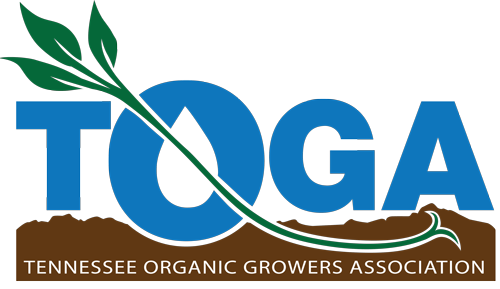Mathew Young / Dilip Nandwani
1:00pm
This session will discuss organic certification process for anyone who is interested in learning about certified organic. Participants will learn professional, efficient and objectives of organic certification and process to assist farmers, ranchers, food handlers, processors and other vendors. Basics of organic certification process, transition to organic, USDA National Organic Program (NOP) rules and regulations, organic standards, national list (OMRI), input requirements, benefits and cost of certification and many more topics will be covered.
Cindy Shapton
2:00 pm
So many incredible herbs, we want to grow them all! But how much room do you have? How much time do you have? Don’t get overwhelmed. Let me show you 12 herbs to grow this year that will reward you with food, medicine, pollinators, companions plus more customers and of course fun.
Paul and Elizabeth Lassiter, Lost Weekend Farm
3:00 pm
Trying new things and cutting out what doesn’t work. From markets to customers to tools and crops, innovations and heavy pruning have been key to LWF survival and position in our local markets. When we started the farm, concepts like succession plantings, integrated pest management, stale seed beds, and physical exclusion of pests were new to us. How to protect yourself and property at market while maximizing sales potential is also something we’ve learned a lot about. Identifying crops that are profitable to us, finding our customers, and getting the right tools for the job has been a journey. We’ll take a look at things that have worked for us as well as some things that haven’t.
Victoria Fillmore, Cedar Hill Homestead
4:00 pm
In this class, Victoria, of Cedar Hill Homestead will be discussing common wild food & herb plants that are both easy to grow and likely already growing in your yard! She will discuss common uses for common ailments and how we can work with them to become a closer part of our plant community.
Alec Higgins, Caney Fork Farms
8:00am
Chestnuts are a nut crop with great potential for growers in the Southeast, with opportunities for strong return on investment both financially and ecologically. This session will outline chestnut production and marketing, covering how to identify suitable growing sites, how to select the right trees, the design and management of orchards, and the basics of harvesting, processing, storing and selling chestnuts.
David Cook
9:00am
Soil is probably the least understood component of both conventional and organic farming. You don't need a degree in soil science, but a general understanding of various soil principles will help you to grow more healthier produce/crops with increased yields. This program will present basic information on soil physical properties, the soil profile and soil horizons. Learn about the symbiotic relationship between soil microbes and plant roots, and soil pH and its effects on nutrients availability.
Alec Higgins, Caney Fork Farms
10:00am
Silvopasture is the practice of integrating trees into livestock systems, and has the potential to increase animal welfare and productivity, improve soil and watershed health, promote biodiversity and sequester carbon. This session explores how graziers in Tennessee can make use of trees to improve their financial and ecological outcomes, covering the basics of how to successfully design, implement and manage silvopasture systems, as well as potential sources of funding.
Cindy Shapton, Fernvale Herb and Flower Farm
11:00 am
Herbs are more than just spices in your kitchen cabinets; they are the unsung heroes in the garden too. Herbs are multifaceted benefactors that help to keep you, your soil and garden plants healthy while discouraging pests and inviting pollinators into the garden.
Up your gardening/farming game as you fall in love with these amazing plants.
David Cook
1:00 pm
Integrated Pest Management (IPM), as defined by the United States Environmental Protection Agency, is "The coordinated use of pest and environmental information with available pest control methods to prevent unacceptable levels of pest damage by the most economical means and with the least possible hazard to people, property, and the environment." Organic pest management involves this same principle, but takes it a little bit further. This presentations will present organic methods for monitoring and managing insect pests in greenhouses, high tunnels, orchards and farms. Topics will include providing habitat for beneficial organisms, maintaining a health living soil, best nectar and pollen plants for beneficials and native bee pollinators, and organic insecticides and other tools.
Todd and Christa Bentley, Sweeter Days Farm
2:00 pm
Plant propagation and seedling production is a crucial component to successful market gardening. We will share our experiences with a variety of greenhouse configurations and focus on affordable, scale appropriate greenhouse options. We will discuss budget friendly germination chambers, heating/cooling, potting soil, nursery sales and resources.
